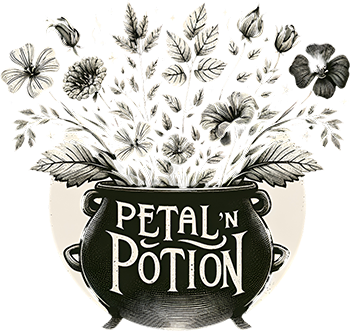C h a m o m i l e
Chamomile (Matricaria chamomilla or Chamaemelum nobile) is a daisy-like herb commonly used for its medicinal properties.
It has been utilized for centuries in traditional medicine for its calming effects and ability to treat various health conditions,
particularly related to digestion, sleep, and skin health.
Benefits
- Sleep Aid: Promotes relaxation and helps alleviate insomnia.
- Digestive Health: Eases digestive issues such as indigestion, bloating, and gas.
- Anti-Inflammatory: Reduces inflammation, aiding conditions like arthritis and other inflammatory diseases.
- Anxiety Relief: Acts as a mild sedative to reduce anxiety and stress.
- Skin Health: Treats skin conditions such as eczema, rashes, and wounds due to its anti-inflammatory and antimicrobial properties.
- Antioxidant Properties: Provides antioxidants that protect cells from oxidative stress and damage.
- Immune Support: Enhances immune function and helps the body fight off infections.
- Menstrual Support: Helps relieve menstrual cramps and regulate menstrual cycles.
Active Compounds
- Apigenin: A flavonoid that binds to certain receptors in the brain, promoting relaxation and reducing anxiety.
- Bisabolol: Known for its anti-inflammatory and antimicrobial properties.
- Chamazulene: Offers anti-inflammatory benefits and supports skin health.
- Flavonoids: Provide antioxidant protection and support overall health.
- Terpenoids: Contribute to the plant’s anti-inflammatory, antimicrobial, and antioxidant effects.
Who Should Avoid This
- Individuals with Allergies: Those allergic to chamomile or other plants in the Asteraceae family should avoid it.
- Pregnant and Nursing Women: Due to limited safety data, it is advisable to consult a healthcare provider before use.
- Individuals on Medication: Particularly those taking blood thinners, sedatives, or antiplatelet drugs should consult a healthcare provider to avoid interactions.
- Individuals with Hormone-Sensitive Conditions: Such as breast cancer, uterine cancer, ovarian cancer, endometriosis, or uterine fibroids should use caution, as chamomile may act like estrogen in the body.
Warnings
While chamomile offers numerous health benefits, some precautions and potential side effects should be considered:
- Allergic Reactions: Can cause allergic reactions in individuals sensitive to plants in the Asteraceae family (such as ragweed, daisies, marigolds).
- Pregnancy and Breastfeeding: Consult a healthcare provider before use, as high doses may not be safe.
- Gastrointestinal Issues: High doses may cause nausea or vomiting.
- Interactions with Medications: May interact with certain medications, including blood thinners, sedatives, and antiplatelet drugs.
Usage Guidelines
Chamomile can be used both short-term and long-term, depending on the condition being treated. For acute issues such as digestive discomfort or anxiety, it is typically used until symptoms improve. For ongoing benefits such as sleep support or skin health, longer-term use may be appropriate but always under the guidance of a healthcare professional. Always consult with a healthcare provider to determine the correct dosage and duration for your specific needs.
